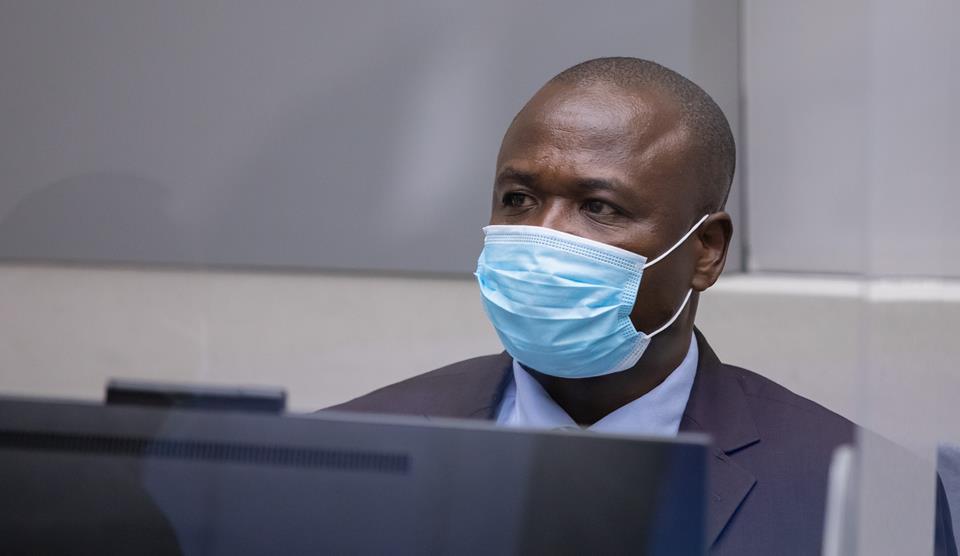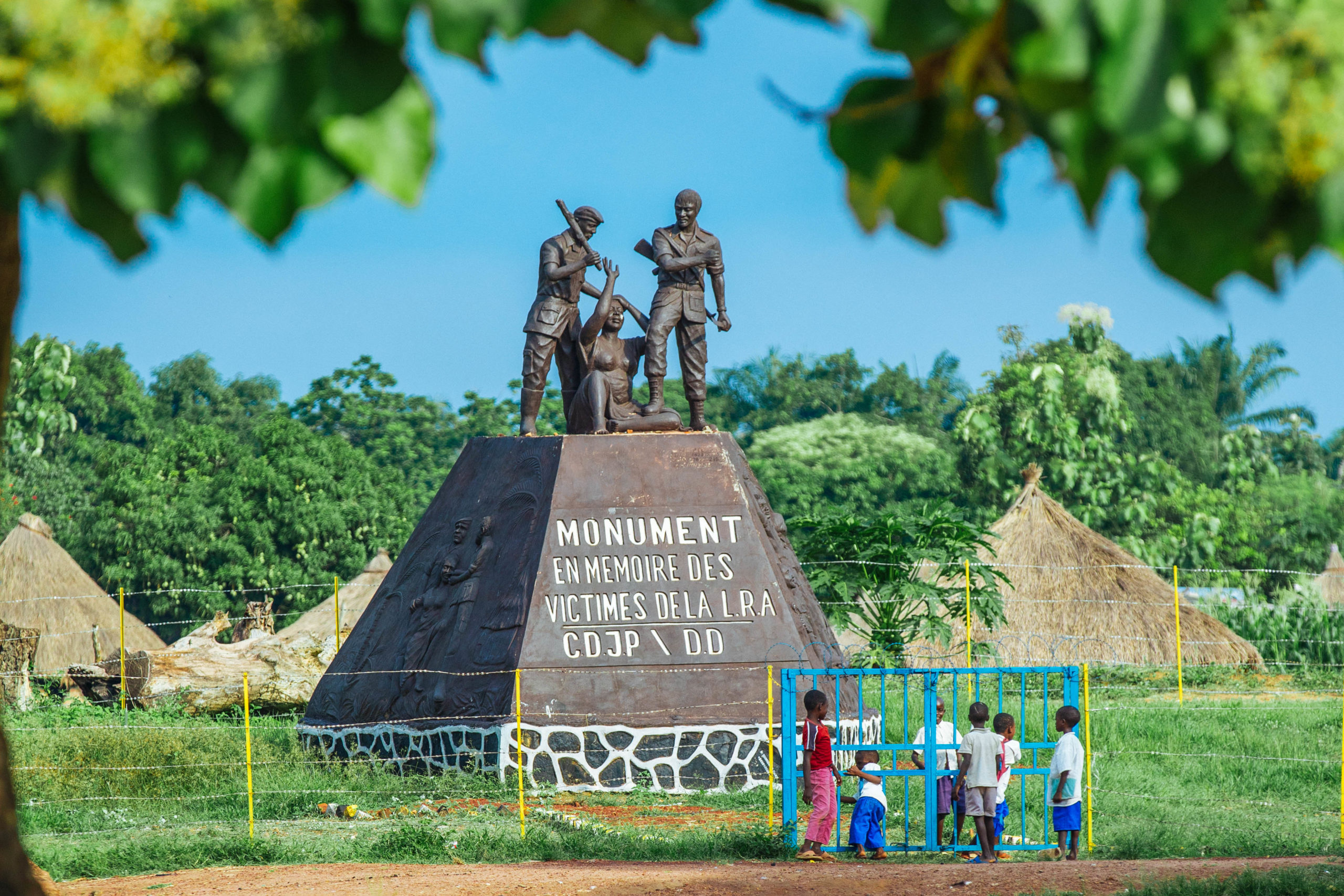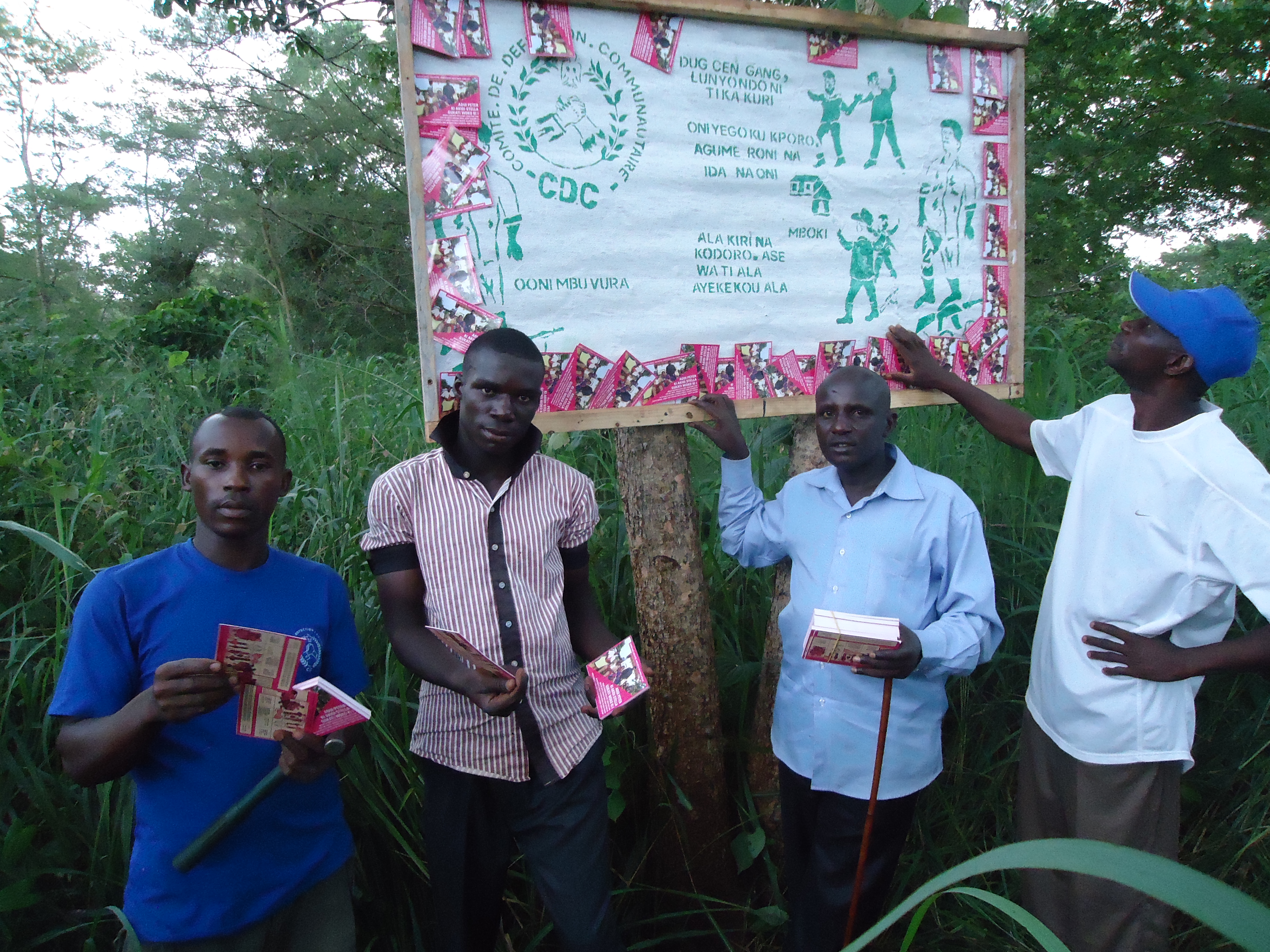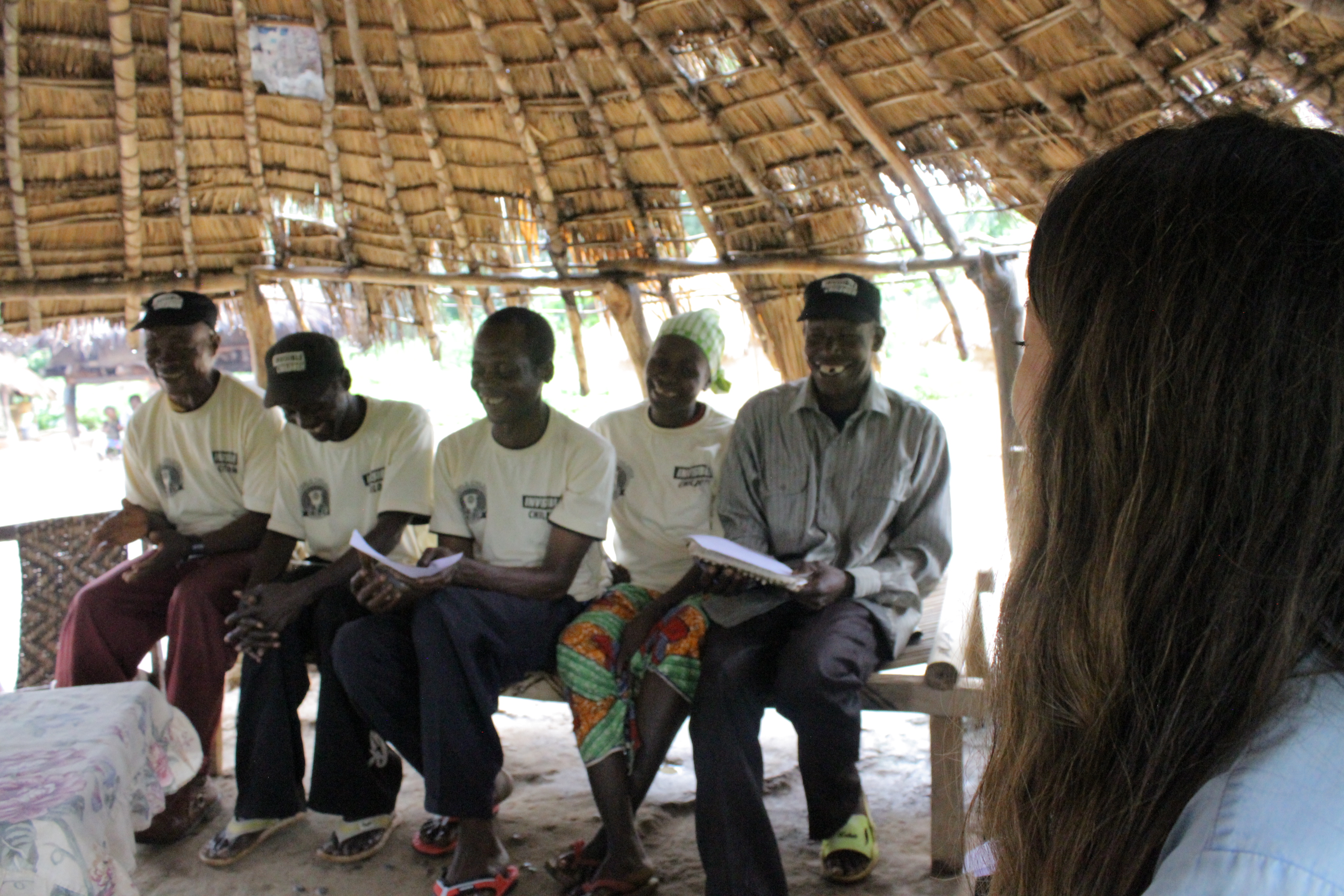On February 4, 2021, the International Criminal Court (ICC) issued a verdict in the trial of former senior Lord’s Resistance Army (LRA) commander Dominic Ongwen, who surrendered to African Union forces in January 2015 after almost 30 years in the bush as an LRA rebel fighter. The ICC found Ongwen guilty of 61 out of 77 charges of war crimes and crimes against humanity.
Invisible Children has published multiple reports and updates on Dominic Ongwen over the past 16 years, including this analysis of what his 2015 defection might mean for the future of the LRA. Today, in the wake of the ICC’s historic verdict, and as the world’s attention returns momentarily to the horrific crimes and complex history of the LRA, I want to share some personal reflections on Dominic Ongwen and the ICC verdict.

First and foremost, I want to underscore that the most important perspectives on the Ongwen verdict are those of the civilians in Northern Uganda, the Democratic Republic of Congo (DRC), the Central African Republic (CAR), and South Sudan, who have borne the brunt of the violence perpetrated by Ongwen and other LRA commanders. Understandably their perspectives on Ongwen and on what “justice” means as it relates to LRA commanders are certainly not uniform. They are varied, complex, and contextual. Here are just some of the reactions from LRA survivors in Northern Uganda following the ICC’s verdict:
+ Irish Times: Lukodi massacre: ‘They should pay us because we lost so many people’ (Feb 5, 2021)
In upcoming posts, Invisible Children will share reactions from various central African community leaders to the Ongwen verdict. In the flurry of the 48-hour news cycle, these voices and insights are so often overlooked, when they should be elevated and centered.
Having worked on the LRA issue for more than 14 years, I am one of a handful of “LRA Watchers” who has been seized by the particularly tragic nature of Dominic Ongwen’s story, while simultaneously working to help end LRA violence both at the policy level and by supporting on-the-ground community protection and defection initiatives. Since 2009, I have kept a photo of Dominic Ongwen saved in my phone and discussed the heartbreaking tragedy of his story with friends and colleagues over the years.
Here are a few things I can say with certainty: I am grateful that Dominic Ongwen is off the battlefield and no longer able to perpetrate violence against Ugandan and Central African communities. I am grateful that he peacefully surrendered and was not killed, either by regional security forces or by Joseph Kony (who has been known to execute commanders who betray or anger him). I am grateful that, through Ongwen’s trial process, thousands of Northern Ugandans impacted by Ongwen’s violence have been able to share their stories and have their suffering recognized in ways it previously was not.
I believe it is fitting to say that the ICC’s verdict was both a historic and immensely important step toward justice for survivors and victims of LRA violence and for human rights broadly. Accountability matters. Healing and peace are not possible without it.
At the same time, this verdict was not satisfying for many people. For one, last week’s verdict does not address crimes committed by the Ugandan military during the conflict, and the ICC has yet to pursue any cases related to these crimes. In addition, the charges against Ongwen were exclusive to crimes he committed in Uganda. This leaves out the experiences of thousands of children, women, and men who have been killed, tortured, raped, abducted, displaced, and traumatized by LRA violence in DRC, CAR, and South Sudan. Before defecting from the LRA in 2015, Ongwen spent many years as a commander of LRA groups that committed atrocities in northeastern DRC, one of the most horrific cases being the Makombo Massacres of 2009. (This massacre actually served as the catalyst for Invisible Children’s Early Warning Network and Crisis Tracker initiatives because we wanted to help ensure that such a massacre could never happen again.)

Additionally, as many have already highlighted, Ongwen was abducted by the LRA as a 10-year-old child on his way home from school. Who knows who Ongwen would be and what he would be doing with his life today if he had made it home safely that terrible and fateful day 30 years ago; perhaps he would have become a school teacher like his parents. But he didn’t make it safely home that day. Instead, he was conscripted as a child soldier, likely tortured, manipulated, and forced to witness and commit terrible acts of violence, just like thousands of other abducted children have experienced within the LRA. Over the course of 30 years, Ongwen rose up within the ranks of the LRA, becoming one of Joseph Kony’s top commanders. And now, in 2021, Ongwen has become the first ICC indictee to be charged and found guilty of crimes against humanity for which he is also a victim.
In 2016, I met with survivors of an LRA massacre in the town of Lukodi, Northern Uganda, a massacre that Ongwen was found guilty of leading. When I asked these survivors how they felt about Ongwen’s ICC indictment and trial, one of the first things they expressed was confusion as to why Ongwen was immediately taken all the way to Europe to stand trial after he defected from the LRA in 2015. “Why could he not have been brought to Uganda so that we could see his face and look into his eyes, and hear directly from him?” they asked. “He is our own brother who did this to us, but we were not given the chance to even see him.”
Needless to say, Ongwen’s case is a complicated one. Like some members of the Lukodi community, there are others in Northern Uganda who carry the scars of Ongwen’s crimes while also still seeing him as their brother and a fellow victim of LRA violence.
There are many others in Uganda and across central Africa, however, who whole-heartedly welcome the ICC’s verdict. My Invisible Children colleagues and I engage daily with survivors of LRA violence across remote corners of DRC, CAR, and South Sudan who, for many years, have called on the international community to arrest Joseph Kony and other top LRA leaders and bring them to justice. Many of these community members do not see Ongwen or other LRA fighters as their brothers or fellow victims of the LRA. Their experience of the LRA is one of brutal, predatory violence from a foreign armed group that they never provoked and with whom they had no history. For hundreds of thousands of civilians across central Africa, whether they know the name “Dominic Ongwen” or not, a guilty verdict for a senior LRA commander is a welcomed step forward toward accountability and an end to the terrors of the LRA.

And yet, amazingly, thousands of people from these same communities have also worked collaboratively and creatively with Invisible Children on “Come Home” messaging campaigns to encourage LRA fighters and abductees to peacefully defect, and they have played key roles in ensuring the safety and care of LRA abductees and defectors who eventually choose to escape. In fact, when Dominic Ongwen defected from the LRA in 2015, he was first received by a remote community in northeastern CAR that had itself suffered from multiple LRA attacks.
I believe Ongwen’s story is an extreme example of a pervasive reality: that the concepts of “perpetrator” and “victim” are not clear-cut, but rather complex, tangled, and non-binary; and that violence most often takes place in the context of relationships, where the perpetrator’s punishment and complete separation from society do not necessarily result in justice or healing for victims. As many BIPOC and global south activists and advocates have argued for decades, Western, punitive justice systems are not spacious enough to adequately hold this reality in full, often resulting in a lack of true healing for victims or sometimes even result in more harm.
As the world takes notice of the Ongwen verdict this week, my hope is that the international attention serves to do the following:
+ Shed light on the historic and ongoing suffering of LRA affected communities across Northern Uganda, DRC, CAR, and South Sudan, and catalyze more international support for their long-term healing and recovery;
+ Remind the world that Joseph Kony, who abducted Ongwen and turned him into a child soldier, is still at large and must be apprehended. With every day that passes, he continues to hold dozens of women and children captive and commit crimes against humanity;
+ Remind the world that the LRA never operated in a vacuum. There must be accountability for crimes against civilians committed by the Ugandan military during its conflict with the LRA, and the Ugandan government’s historic marginalization of northern Uganda, as well as its ongoing human rights abuses, must be addressed.
+ Underscore the need for the international community to earnestly explore and invest in restorative approaches to justice that aim to unearth, understand, and repair harm. This will require listening to and learning from indigenous communities and other global south communities that have practiced such restorative justice approaches for centuries.

In the meantime, our Invisible Children team will continue to do what we have done for the past 16 years. We will stand with LRA-affected communities and families across central Africa threatened by armed group violence. We will partner with them in documenting and exposing the realities they face, demanding action from their own governments and the international community, and building dynamic, community-led solutions to prevent violence and build safer, thriving communities. Learn more about how we do this and how you can support our work and the work of central African communities on our website.
Think people should hear about this?